Interweaving with Jorge Ramos Tolosa: Spain’s First Student Encampment for Palestine
As student encampments protesting Israel’s genocide in Gaza and demanding an end to institutional complicity continue to multiply throughout the United States, students at universities in other countries are also participating in this new wave of solidarity actions. On April 17, students launched Spain’s first pro-Palestine encampment at the University of Valencia (UV). Since that time, new encampments (acampadas in Spanish) have emerged in other cities throughout Spain,
To learn more about the first encampment in Valencia, I reached out to Dr. Jorge Ramos Tolosa, who teaches contemporary history at UV. In addition to his scholarship and teaching, he is a longtime activist with BDS Valencia and the Red Solidaria contra la Ocupación de Palestina (RESCOP), a network of Spanish organizations working in solidarity with Palestine.
As an academic who has written extensively about the Palestinian struggle, how do you view the importance of the student encampment at Columbia and the other US universities?
It’s a historic moment. This genocide has been documented audiovisually more than any other, by both the victims and victimizers. It is the worst genocide of our generation and the one that speaks most harshly about the complicity of the West. But it is also historic because of the gigantic and growing response of solidarity on the part of millions of people and organizations throughout the world.
And here, beginning on Palestinian Prisoners’ Day (April 17, 2024), the student encampments initiated in the United States are occupying a prominent place. The fact that it is a horizontal and rhizomatic movement, without being directed by large political parties or unions, gives it a capacity for multiplication and an extraordinary flexibility.
In addition, as in other historical episodes, the political authorities who order the repression of people in these camps should learn from history and should know that the more they repress, the more they will spread indignation and solidarity throughout the world.
Why did the students and faculty in Valencia decide to create an encampment at this time?
Fortunately, many other Spanish universities are already joining, but at the University of Valencia, we were the first in Spain and one of the first in Europe and the Mediterranean region. Since BDS Valencia (formed in 2012) and Students for Palestine (formed in 2023), we thought that the solidarity should continue growing. And as was happening in the US context, the format of encampments on a university campus could be a very fruitful approach.
“The cabinet of hope of the Palestinian people is full of words, speeches, resolutions…and empty of actions. And today, more than ever, the Palestinian people need actions, which means the end of complicity at all levels. ”
There are three local and national factors that pushed us to take this step: First, Valencia has a long and intense history of solidarity with Palestine: in 2018 alone, for example, the Valencia City Council and the Valencian Parliament (the regional parliament that represents the legislative power over more than five million people) joined the BDS framework, declaring themselves Spaces Free of Israeli Apartheid and becoming the largest city and parliament in the world to join BDS. Since October 2023, this solidarity has multiplied with countless actions and demonstrations, and this has been the ground on which the current encampment has been built.
Second, the experience of the 15M movement in Spain (whose New York version was Occupy Wall Street) reminds us of the great social and political potential of encampments in public spaces.
Third, the student movement in Valencia and in Spain as a whole was more paralyzed than usual, and the Palestinian cause, being the most important cause of humanity right now, has the capacity to reactivate it.
Scenes from the Valencia emcampment
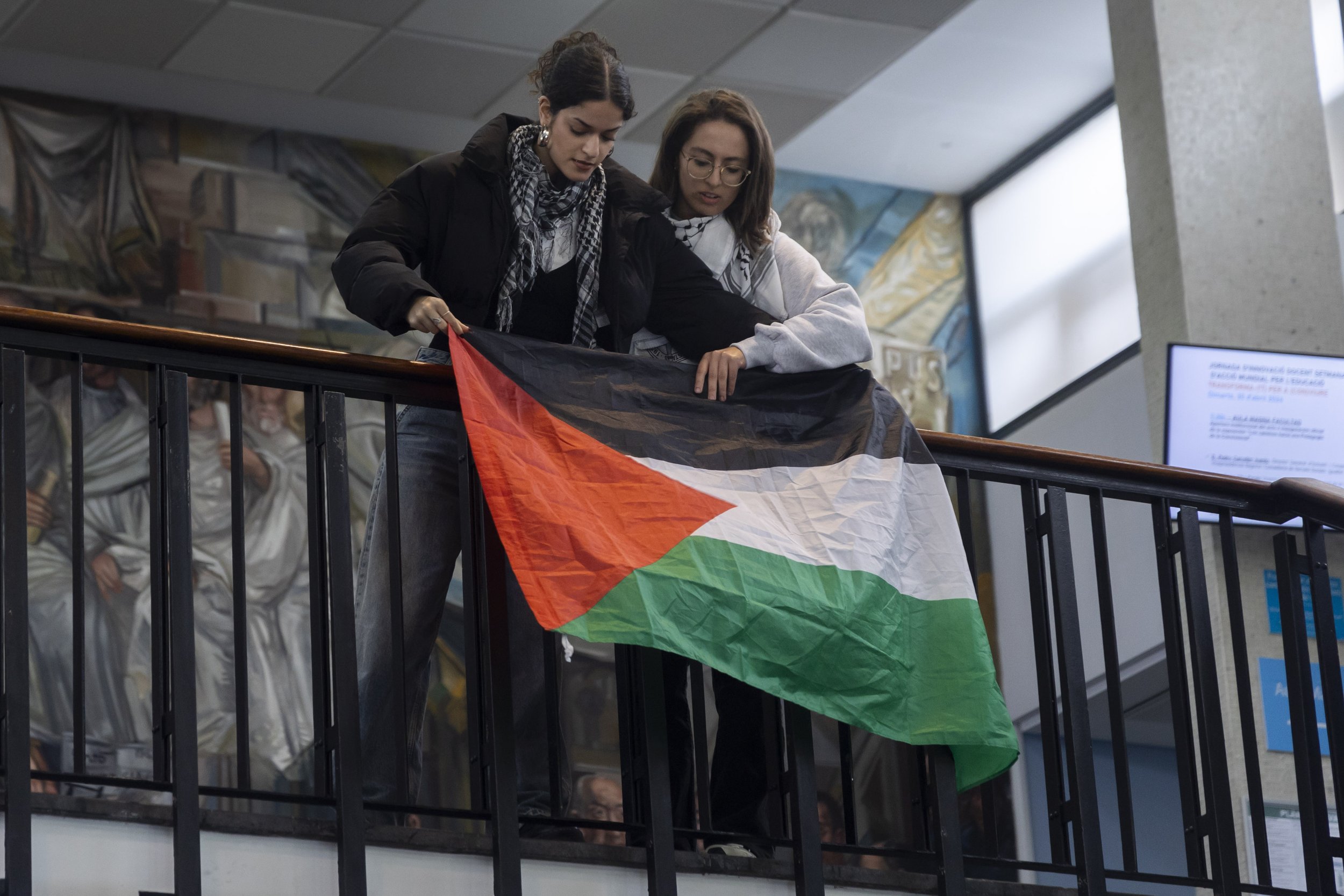
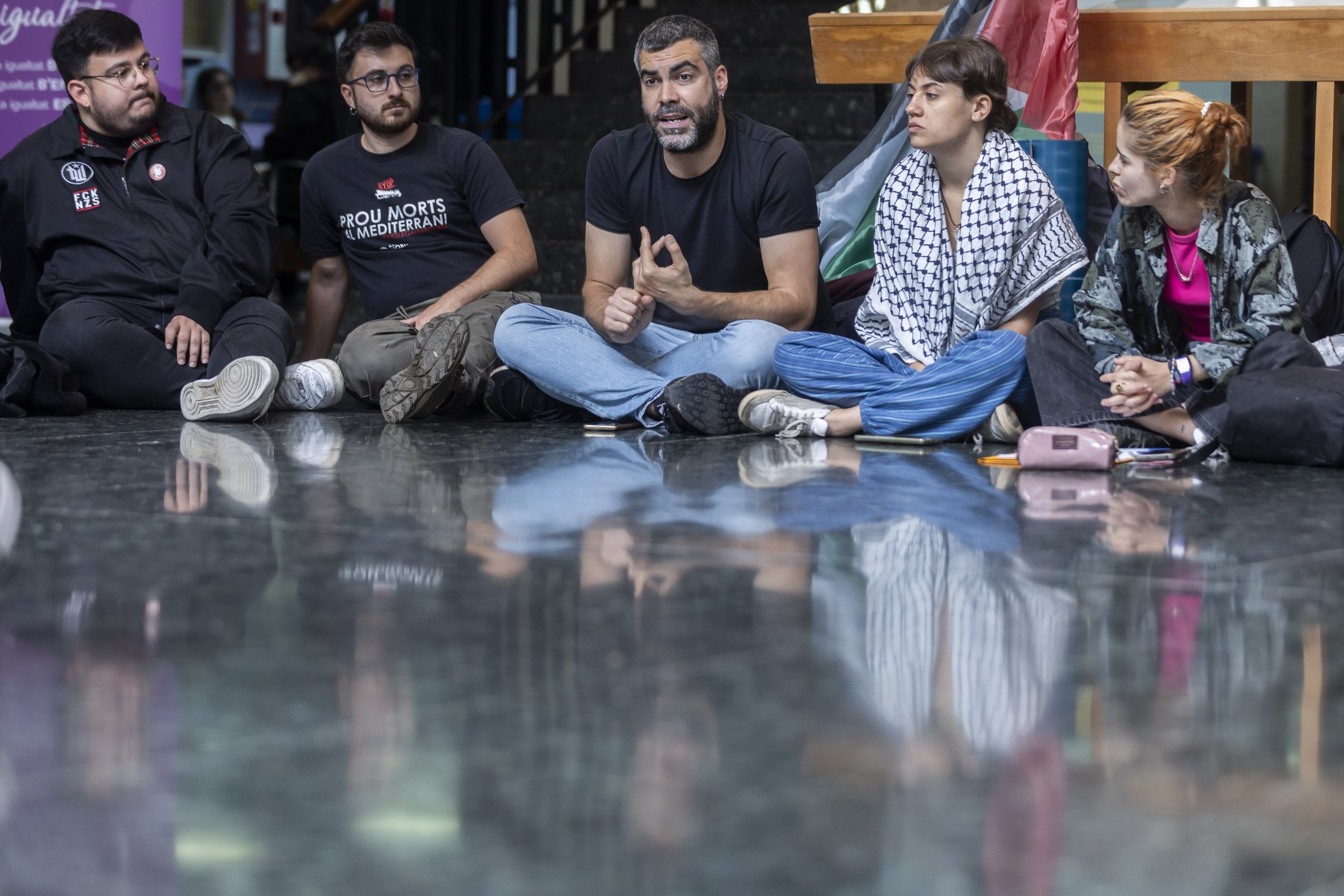
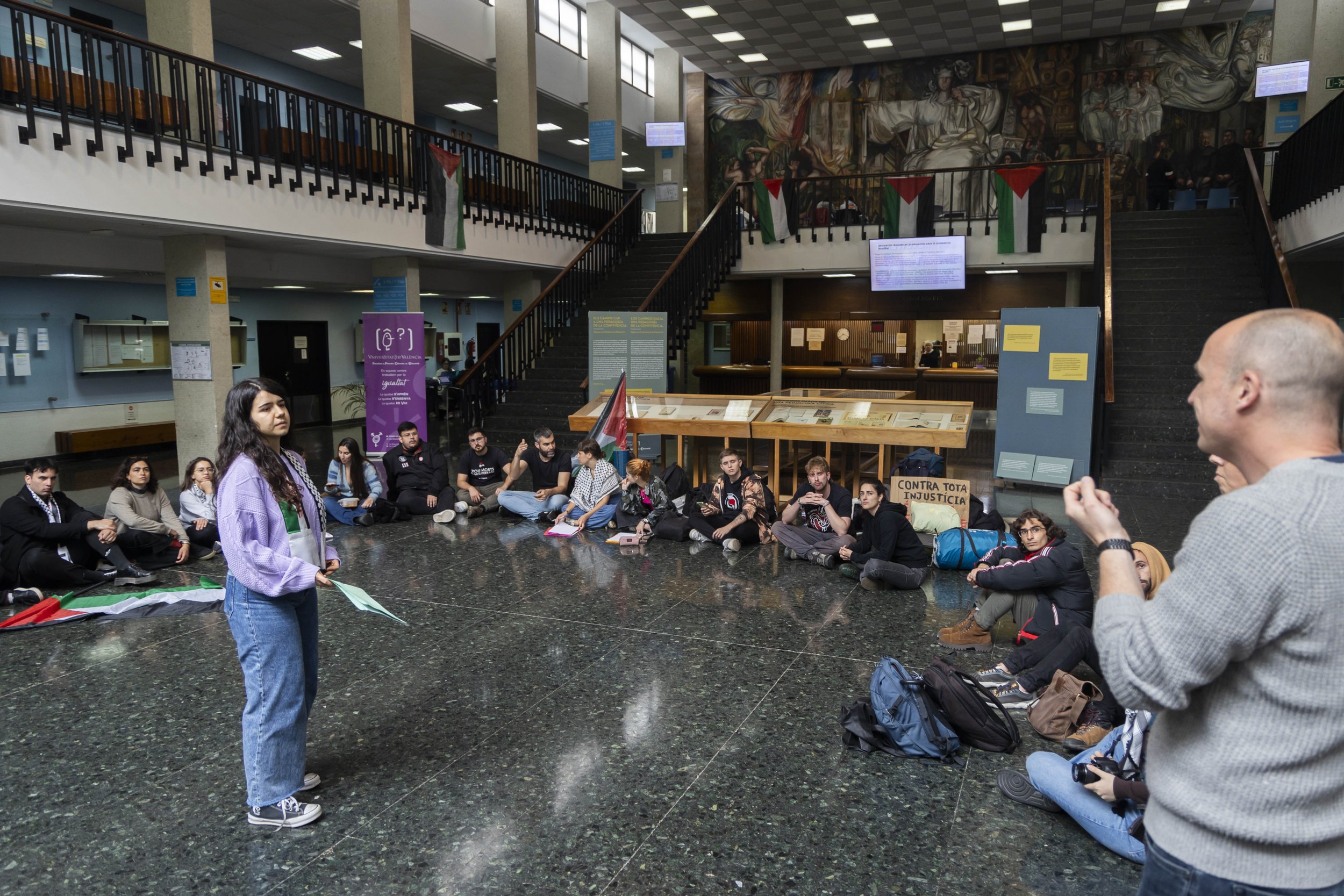
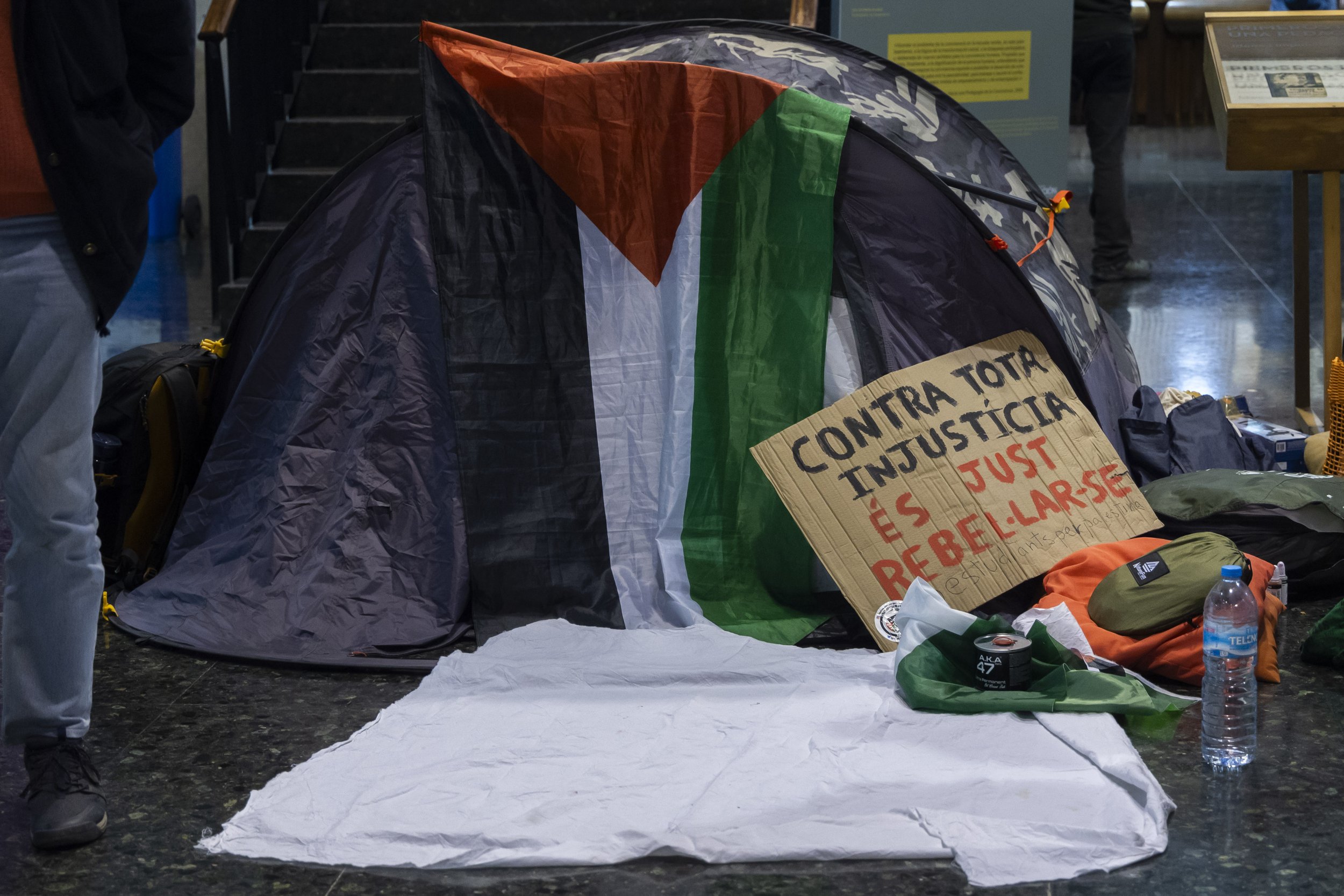
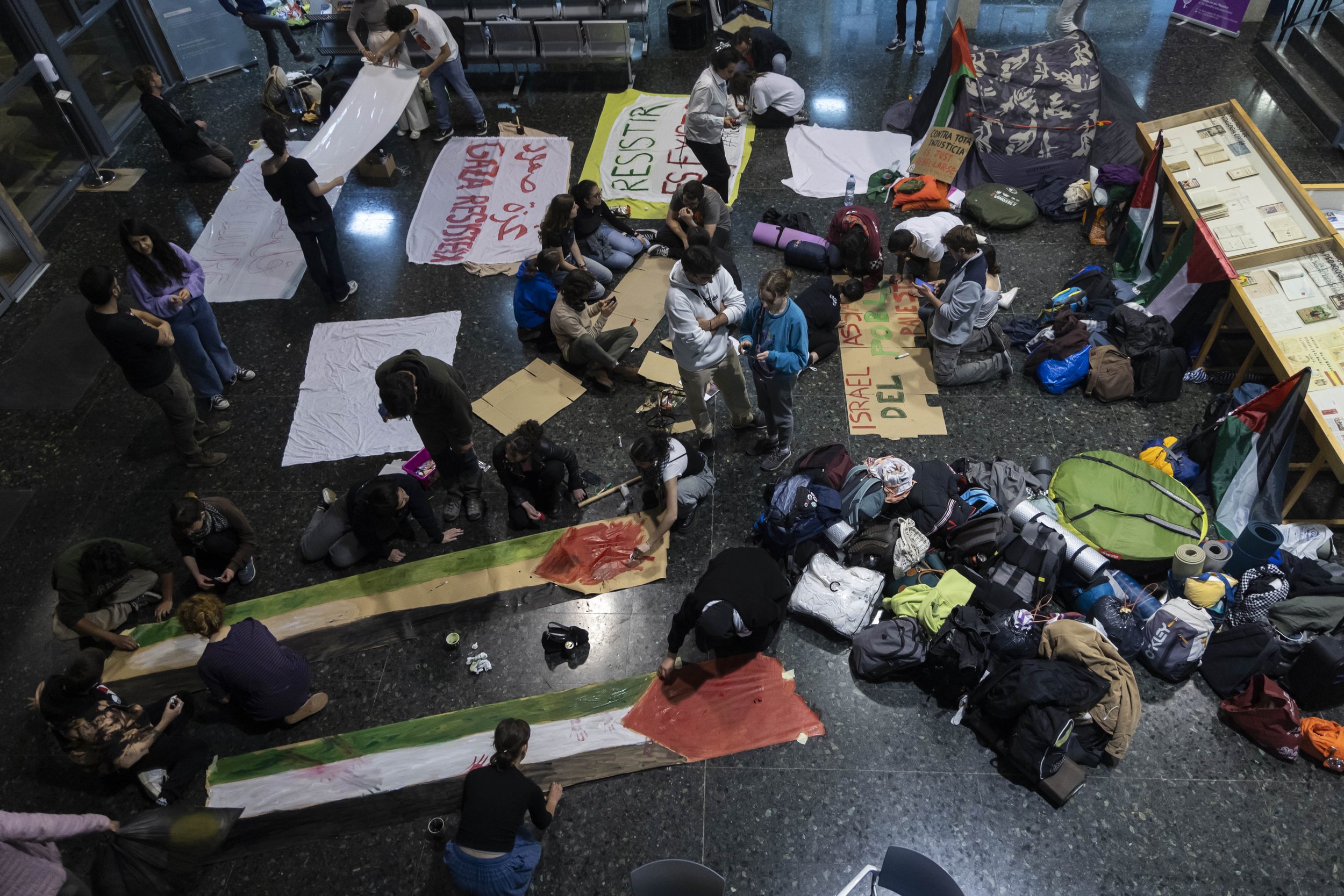
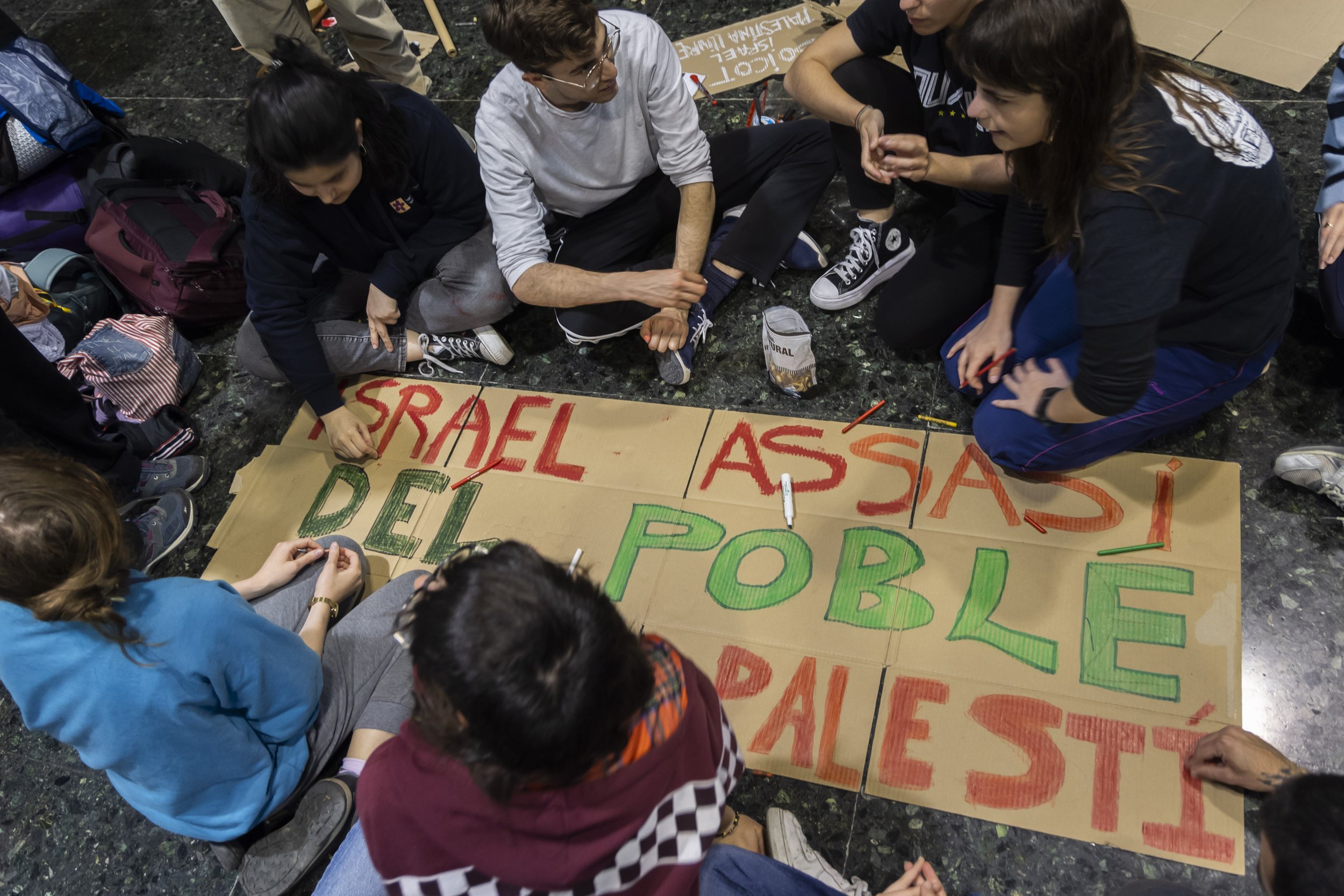
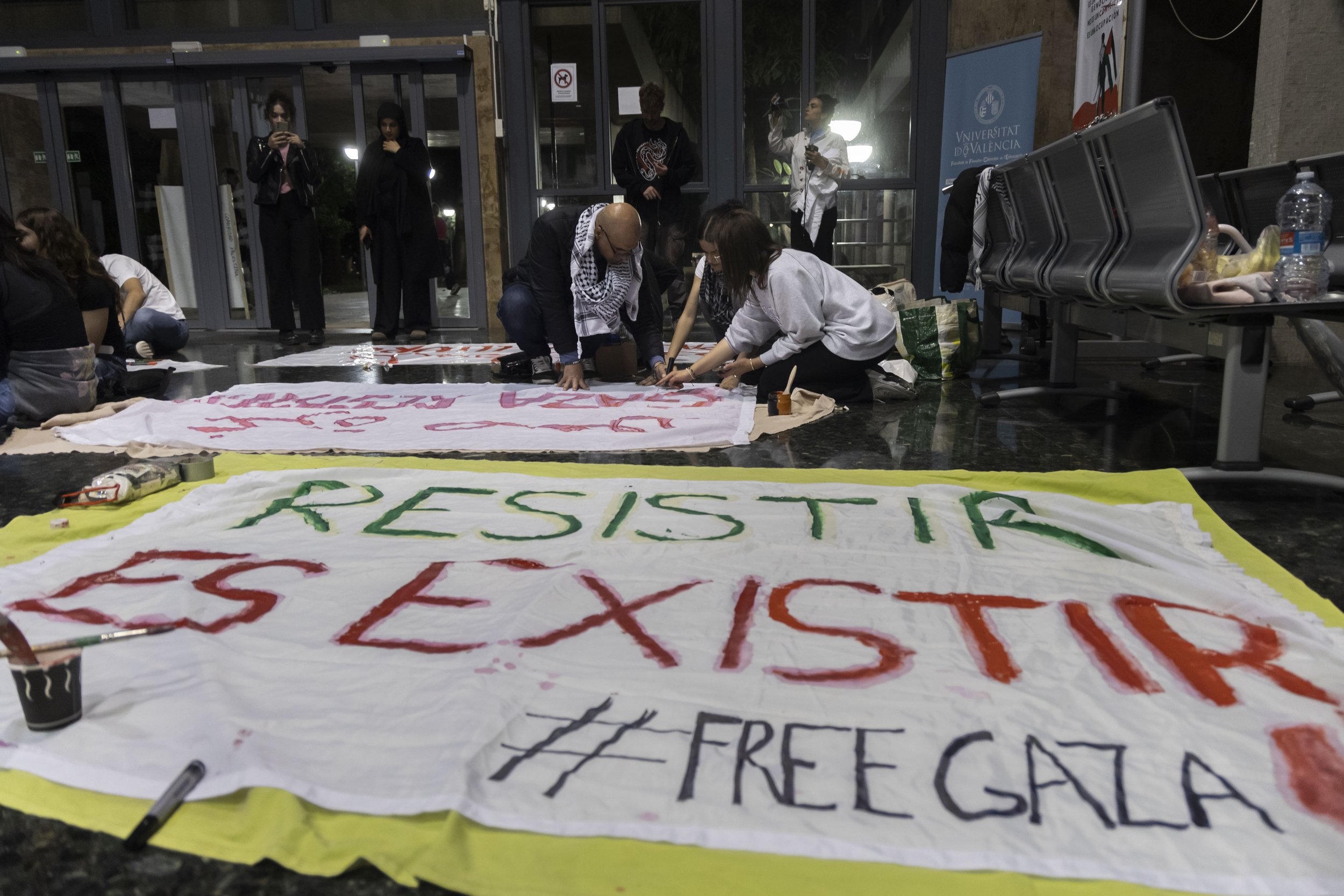
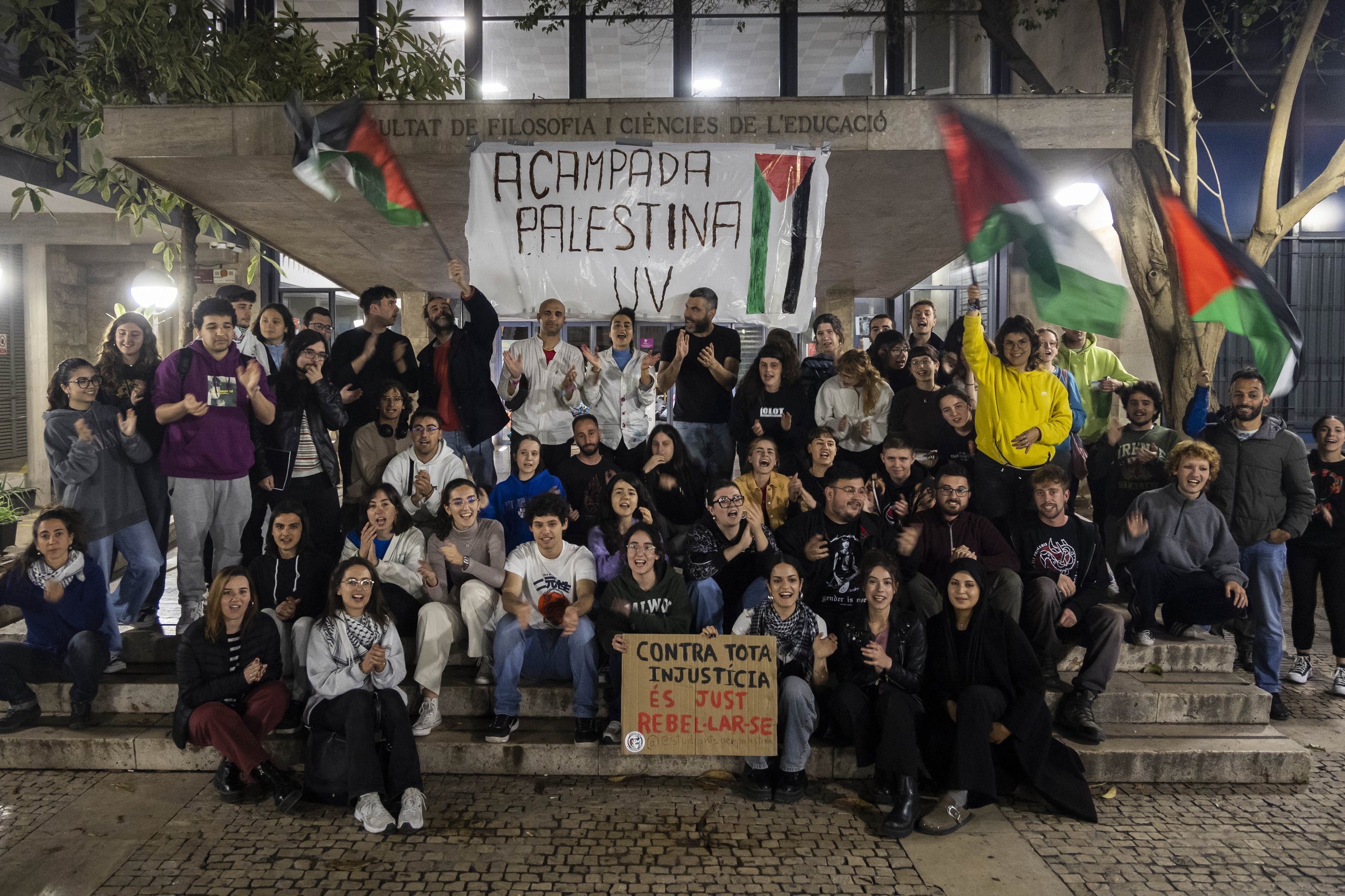
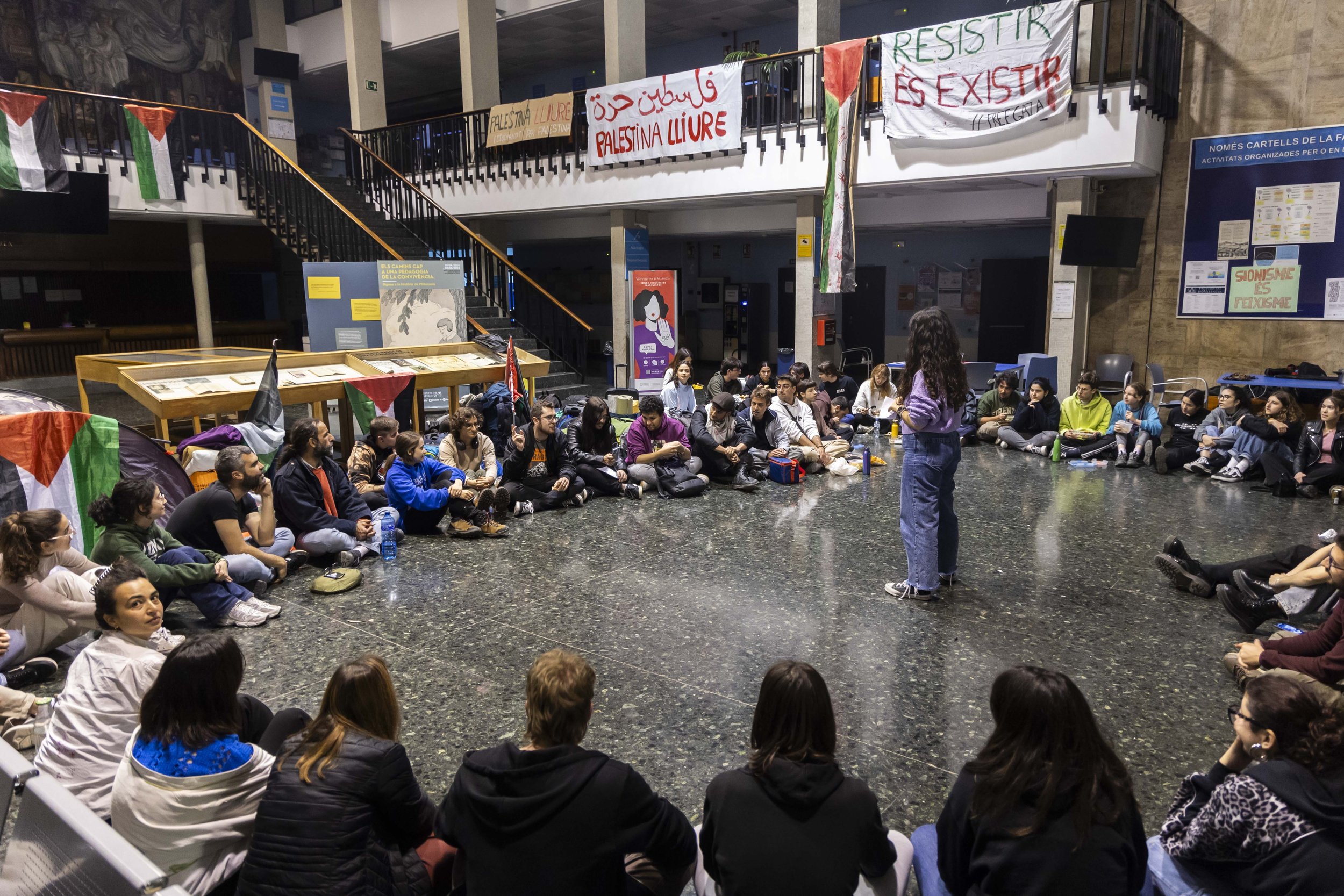
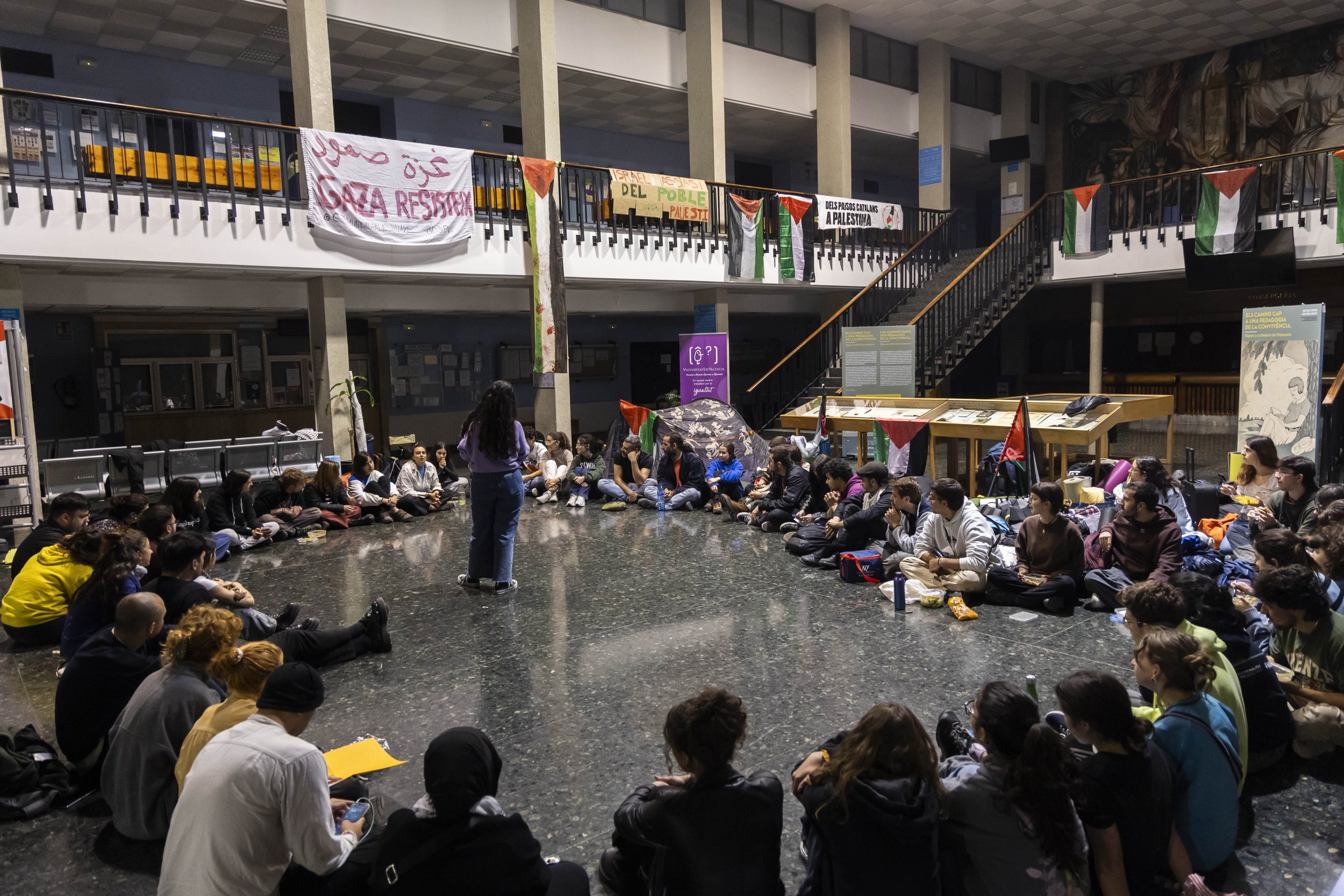
All images courtesy of Acampada Palestine UV.
What are the main objectives of this action in Valencia?
The objective is to contribute to ending the genocide in Gaza in the short term and to the decolonization of Palestine in the medium-long term. The concrete petitions are directed to the University of Valencia (UV) and the Spanish government and are in line with BDS.
To the UV:
The firm and clear commitment, in writing, to not signing any agreement or convention with Israeli institutions, neither now nor in the future until there is an end to Israel’s crimes against humanity against the Palestinian people and its systematic and massive violations of human rights.
Sign new agreements, conventions, and collaborations with Palestinian universities.
The end to all collaboration and contracts with companies and institutions that are complicit in Israel’s crimes against humanity in Palestine (HP, Agua Eden, Banco Santander, AXA…)
Sever relations with institutions that repress student movements in solidarity with the Palestinian people.
To the Spanish government:
An end to arms sales and relations with Israel.
Join the South African initiative at the UN International Court of Justice.
Recover universal jurisdiction. This means that Spanish courts can return to trying those responsible for crimes against humanity and genocide, such as the political and military authorities of the State of Israel.
Put an end to the persecution and criminalization of solidarity with Palestine, and repeal the Gag Law [a repressive security law passed in Spain in 2015 - ed.] and the Alien Law [Spain’s current immigration legislation, which has been criticized for locking migrants into second-class status in the county - ed.]. Solidarity movements with the Palestinian people are being repressed and punished. In addition, the Alien Law is a central pillar of Spanish institutional racism, and the Palestinian cause is inseparable from the antiracist cause.
Demand the release of all Palestinian political prisoners held by the Israeli state.
How do you see the current role of Spanish universities in relation to the Israeli occupation and the genocide taking place in Gaza? And how do you view the position of the current Spanish government?
Although the majority of Spanish universities don’t have the same high level of complicity with the genocidal Israeli regime as many US universities, in several cases they have agreements (including with “universities” located in West Bank settlement colonies, whose very existence is a war crime according to international law), bilateral agreements, research groups, and joint projects and named chairs with companies like HP.
In some cases in the last 10-15 years, the BDS movements in Spain (coordinated within RESCOP) have succeeded in stopping some of this complicity (here in Valencia, for example, in 2021 we succeeded in getting the UV to stop an agreement with Ariel University). But the complicity still continues.
In terms of the Spanish government’s position, even though in some circles it’s considered to be one of the most critical of Israel in the West (along with Ireland), for RESCOP and the BDS groups, and especially for me as an activist with these organizations and as an academic dedicated to Palestine, the key is that the Spanish state continues to buy and sell weapons from/to Israel (despite the fact that Spanish and European law prohibits it and 78 percent of Spanish society supports the embargo) and continues having all types of relations with Israel.
The cabinet of hope of the Palestinian people is full of words, speeches, resolutions…and empty of actions. And today, more than ever, the Palestinian people need actions, which means the end of complicity at all levels.
All translations by the author.

